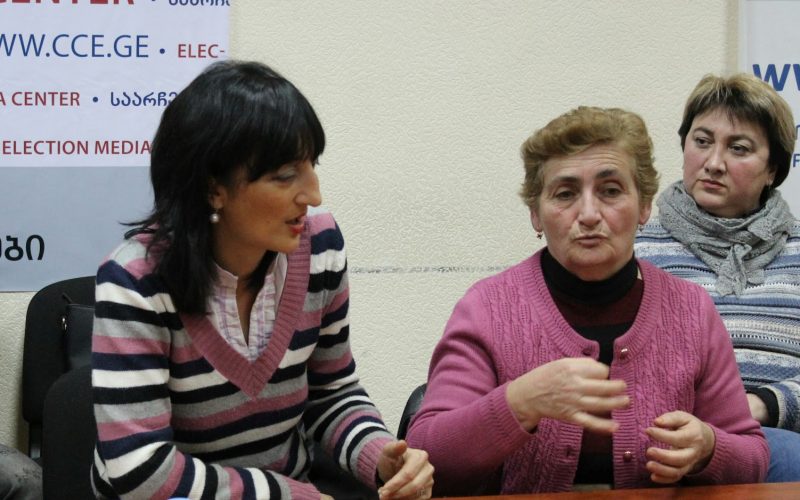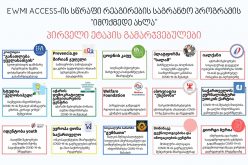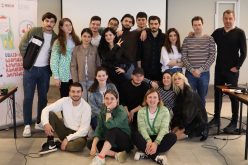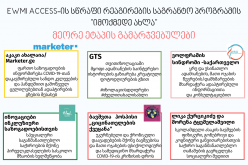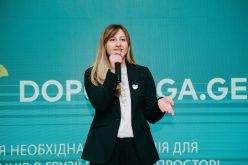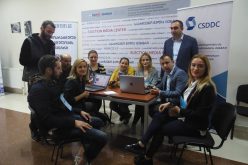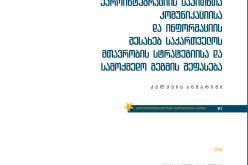In the Telavi Center for Civic Engagement (CCE), open municipal meetings are often simultaneously interpreted in sign language. As quickly as the words are spoken, Ms. Eka Kirvalidze or Ms. Maya Razmadze use their hands and facial expressions to convey information to audience members with hearing or speech impairments. Nods of understanding follow.
Ms. Kirvalidze and Ms. Razmadze are sign language interpreters and community leaders in Telavi, creating an inclusive space for the deaf community. For both women, the choice to become sign language interpreters was personal, as they have family members who are deaf and have witnessed firsthand the challenges and information gap.
In Georgia, the deaf community continues to face issues including domestic violence, and a severe lack of resources in the medical, legal, and financial fields. In these circumstances, members of the deaf community call on Ms. Kirvalidze and Ms. Razmadze in times of need. In addition, Ms. Kirvalidze and Ms. Razmadze are closing the information gap through sign language interpretation of local debates and dialogues.
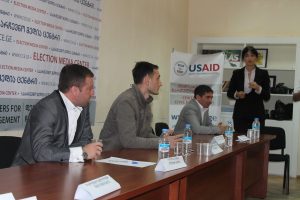
Maya Razmadze provides sign language interpretation at an Election Media Center discussion leading to the 2016 election in Telavi.
“The deaf community in Telavi has a desire to be engaged in public debates concerning local issues, but it is very rare or almost impossible to find sign language interpretation during such debates. For example, local municipal councils never provide such services,” explains Ms. Kirvalidze. “When the Telavi CCE invited us to translate the discussions facilitated at the Center, people with hearing and/or speech impairments felt appreciated and very much part of the community. It was only during the 2016 elections that members of the deaf community realized there were other political parties represented besides the two major parties.”
In conjunction with the Telavi CCE, Ms. Kirvalidze and Ms. Razmadze also facilitate trainings and events at the Telavi CCE. In the recent past, they hosted a three-month sign language training for families and friends of those in the deaf community, serving over 200 trainees. Ms. Kirvalidze and Ms. Razmadze also host community dialogues on topics such as raising a child with a hearing impairment as a single parent, and are active in the Telavi CCE Women’s Club, designing innovative ways to engage deaf women.
The effort to create an inclusive community space for people with disabilities is an organization-wide initiative across the Network of Centers for Civic Engagement (NCCE), the umbrella organization that oversees the CCEs. Currently seven CCEs are fully accessible. In addition, NCCE is actively pursuing local partnerships that work with people with disabilities, for example, with the Kutaisi Education Development and Employment Center. Ms. Maya Purtskhvanidze, Coordinator of the Telavi CCE, further elaborates that, “Our cooperation with the Union of People with Hearing Impairments has allowed the Telavi CCE to facilitate dialogue between politicians and civil society representatives. People with hearing impairments now stand as active contributors to the dialogue. This community has been very thoughtful about how to shape the future of their town and villages, and they intimately understand the critical needs of their community and society. I am positive our efforts will contribute toward building a pluralistic society where every single voice counts, every single citizen is valued, and everyone is treated with due dignity.”
CCEs are supported by USAID’s Advancing CSO Capacities and Engaging Society for Sustainability (ACCESS) project, implemented by the East-West Management Institute.



